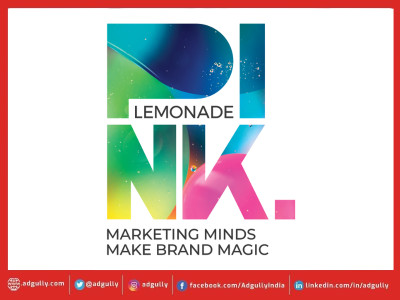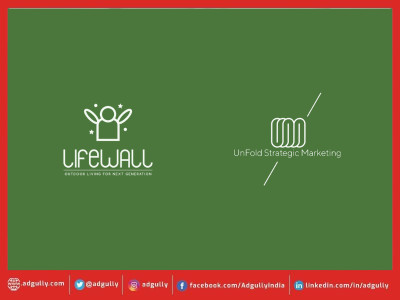There is increasing demand for home-grown, niche PR firms: Abhilasha Padhy
In the last 10 years, PR has taken a different dimension, especially after the entry of social media and the rapid shift to digital, especially in the pandemic period. At the same time the industry has been facing stiff challenges, moreover client expectations have also increased, with more emphasis being given to digital and online reputation management. The industry has undergone a radical shift and the current times have pushed the industry to change gears.
In conversation with Adgully, Abhilasha Padhy, Co-founder and Joint Managing Director, 80dB, speaks about the changing dynamics of client-agency relationship in the PR industry, mantras for a successful reputation management strategy, managing brand reputation in today’s market ecosystem, and more.
How do you view the current dynamics of the client-agency relationships in the PR industry?
The client-agency relationship has become one of true partnership now. Clients expect agencies to bring thought leadership and valuable counsel, even as they jointly craft the business objectives and PR agenda to meet those objectives.
The onus is on both to build a successful relationship. According to me, the best relationships are built on a foundation of mutual respect, trust, honesty, empathy and accountability. To make such a relationship work, the client needs to be open to the agency’s experience and vision, to try new ideas, be responsive and forthcoming with honest feedback, and respect the agency’s business. Likewise, the agency needs to put in their 100% in understanding the client’s business, their business priorities, and target audience, bring on-board subject matter experts, be creative in their approach, communicate transparently and effectively, manage expectations from the get go, and execute diligently towards fulfilling shared objectives for the brand.
How challenging has it become to manage client/ brand reputation in today’s scenario? What are your 5 mantras for a successful reputation management strategy?
Brand reputation management is no longer only about making a company look good or undertaking damage control initiatives. It has become essential to the very survival and success of a business. In addition to being the basis to building strong customer relationships, it also extends to other stakeholders such as employees, suppliers, investors, and the society at large.
While today’s multiple media channels and platforms offer diverse and interesting avenues to connect with different types of stakeholders, it also increases the chances of missteps that could negatively impact brand reputation. Nowadays, brands zealously overshare on social media, making them vulnerable to the pitfalls of brand mismanagement and unfavorable consumer influence.
Customers, too, have access to numerous digital platforms now to voice their experiences, concerns, opinions of the brand. A dissatisfied customer, especially if influential, can significantly dent a brand’s reputation. Further, prospective customers look to these reviews to make buying decisions. This means positive feedback can lead to more conversions, while a negative one can cause tangible business loss.
To be successful, one needs to ensure:
- Constant communication
- Transparency and authenticity in both intent (words) and action
- Emphasis on storytelling
- Awareness of socio-economic dynamics
- Focus on customer-centricity and customer loyalty
What does the road ahead look like for the PR industry in India? What are the top 3 trends that will dominate in the next 3-4 years?
The PR industry has continued to evolve over the last decade. The industry has embraced the explosion of social media and leveraged it to help brands enhance their outreach, learned the ropes of digital marketing, and adopted leading-edge technologies to power data-driven decisions, among other things. If the last 10 years are any indicator of the future, it definitely looks bright.
The top trends that are likely to dominate are:
- PR professionals will be increasingly valued for their objective counsel
Complexity in crafting and executing multi-modal communication will only increase. PR professionals will need to understand their clients’ business nuances and priorities as well as the clients themselves, in order to provide effective counsel, which further needs to be backed by diligent execution. PR professionals will need to continue sharpening the communication proposition to achieve brand objectives.
- PR agencies will have the opportunity to widen their scope
Brands are now moving from promoting their products to customers, to building credible relationships with them, by communicating more effectively and building trust. In this context, PR agencies have the opportunity to widen the scope of their service offerings, as the above plays directly to the strengths of PR professionals and agencies with strong credentials and innovative thinking.
- PR talent will be required to upskill and reskill
The need for PR practitioners to upskill and reskill, in order to add new capabilities to their arsenal, cannot be overstated. From learning how to master digital tools, understanding data and analytics, drawing out relevant consumer insights, getting a grasp of newer communication platforms, as well as becoming research experts, PR talent will have to do it all. Managing the plenitude of choices is going to be critical to running successful communication campaigns.
A few other trends have already been set into motion, which I believe will gain more prominence going forward.
PR agencies are no longer a gateway into the traditional and mainstream media. They now offer integrated vehicles for brands to take charge of their narrative and engage audiences across platforms. Additionally, there is increasing acceptance – rather demand – of home-grown, niche PR firms that offer bespoke solutions.
As brands strive for localisation, the need for regional specialists and adoption of emerging channels of communication to target specific audiences will come sharply into view. Lastly, implementation of disruptive technologies by PR firms is on the rise to help clients widen their reach, target audiences accurately, strengthen their reputations and establish brand loyalty.


















Share
Facebook
YouTube
Tweet
Twitter
LinkedIn